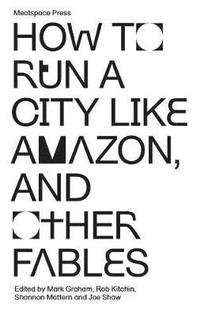319:-
Uppskattad leveranstid 5-10 arbetsdagar
Fri frakt för medlemmar vid köp för minst 249:-
A bold reassessment of "smart cities" that reveals what is lost when we conceive of our urban spaces as computers Computational models of urbanismsmart cities that use data-driven planning and algorithmic administrationpromise to deliver new urban efficiencies and conveniences. Yet these models limit our understanding of what we can know about a city. A City Is Not a Computer reveals how cities encompass myriad forms of local and indigenous intelligences and knowledge institutions, arguing that these resources are a vital supplement and corrective to increasingly prevalent algorithmic models. Shannon Mattern begins by examining the ethical and ontological implications of urban technologies and computational models, discussing how they shape and in many cases profoundly limit our engagement with cities. She looks at the methods and underlying assumptions of data-driven urbanism, and demonstrates how the "city-as-computer" metaphor, which undergirds much of today's urban policy and design, reduces place-based knowledge to information processing. Mattern then imagines how we might sustain institutions and infrastructures that constitute more diverse, open, inclusive urban forms. She shows how the public library functions as a steward of urban intelligence, and describes the scales of upkeep needed to sustain a city's many moving parts, from spinning hard drives to bridge repairs. Incorporating insights from urban studies, data science, and media and information studies, A City Is Not a Computer offers a visionary new approach to urban planning and design.
- Format: Pocket/Paperback
- ISBN: 9780691208053
- Språk: Engelska
- Antal sidor: 200
- Utgivningsdatum: 2021-08-10
- Förlag: Princeton University Press


